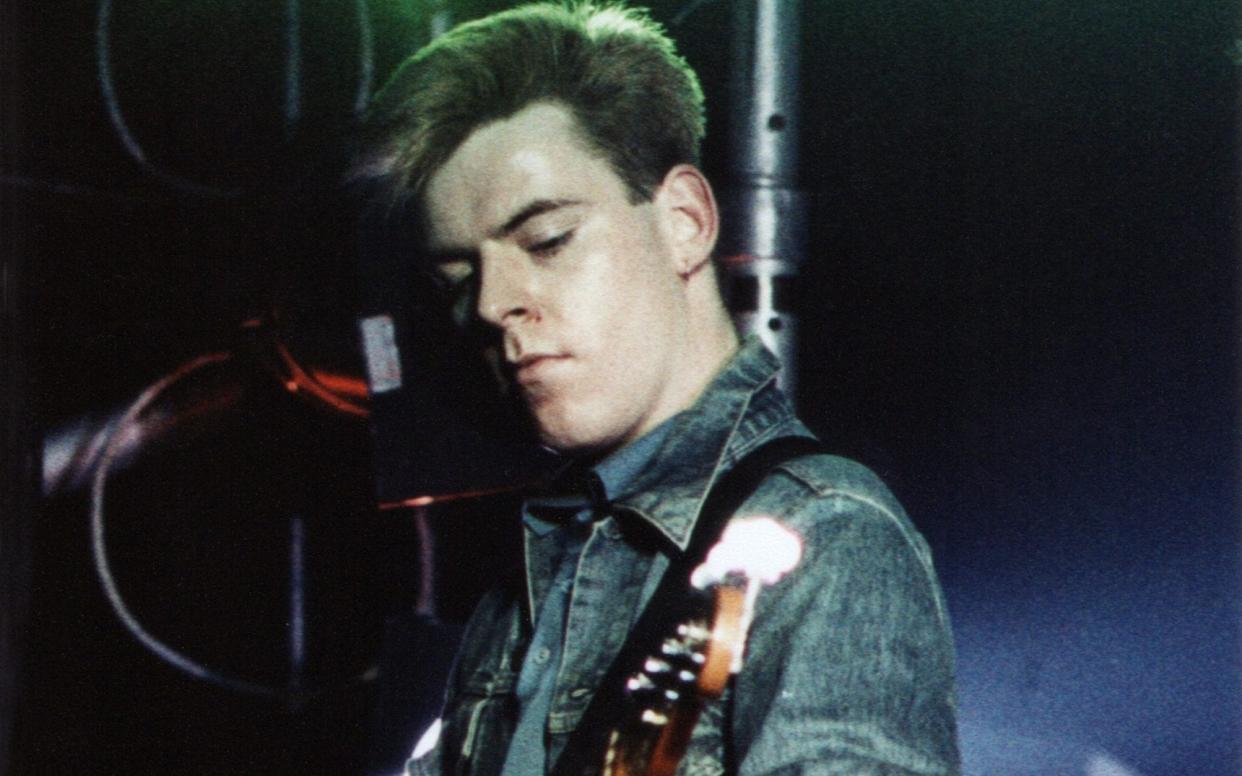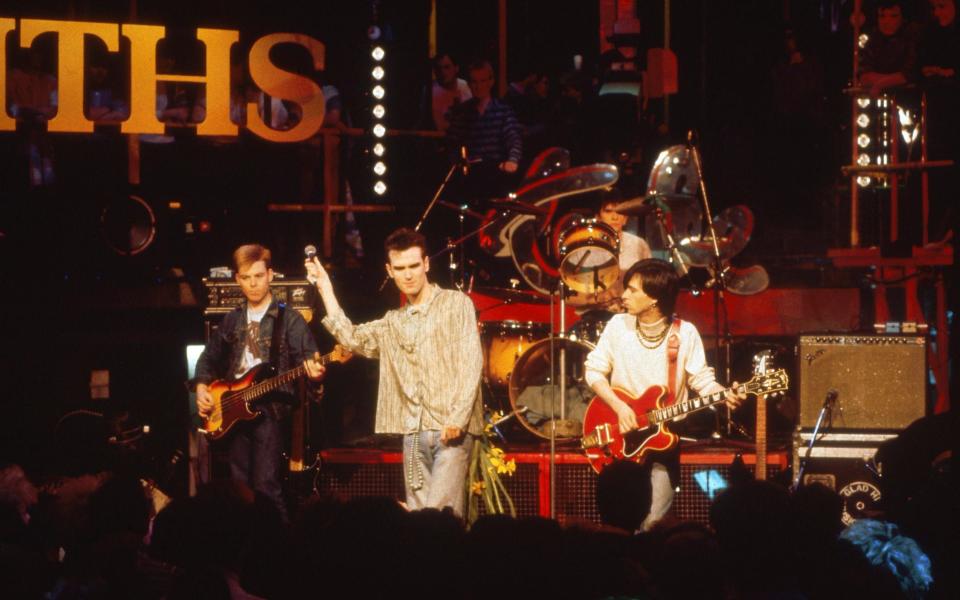Andy Rourke, musician whose melodious bass-playing was a crucial component of the Smiths’ sound – obituary

Andy Rourke, who has died of pancreatic cancer aged 59, was the bass guitarist of the Smiths, his melodic style the perfect undertow to the singing of Morrissey and the guitar-playing of Johnny Marr; but he struggled with drug addiction and was later declared bankrupt .
Andrew Michael Rourke was born in Manchester on January 17 1964; his father was Irish, his mother English. He made an early musical start when he was given a guitar aged seven. Four years later he became friends with John Maher, who would soon change his name to Johnny Marr: “I was really into Neil Young at the time and he was wearing a Neil Young Tonight’s the Night lapel badge,” Rourke recalled. “This was when everyone else seemed to be into Jethro Tull and heavy metal, so Neil Young was a conversation opener.”
They began spending all their spare time together, jamming and listening to music. They formed a funk-influenced band, Freak Party, Rourke taking up the bass at Marr’s suggestion. But without a viable front man Marr quit – then soon after asked Rourke if he wanted to join his new outfit, alongside Steven Morrissey, as he was still known, with Mike Joyce on drums.
Rourke had left school when he was 15, moving in with Marr and his family, and taken up a series of menial jobs while playing in local bands. But his life changed when he joined the Smiths, though his charismatic new bandmate seemed a strange cove, he recalled.
“As I was setting up Morrissey arrived. He introduced himself as Stephen, shook my hand then shuffled into the corner and started going through his bag of lyrics and sandwiches and stuff. People often called him aloof at that time, but I think he was painfully shy, he just wasn’t used to meeting new people.”

Despite the singer’s reserve the foursome gelled immediately, and Rourke, with what Marr would later call his “dazzling basslines”, formed a propulsive rhythm section with Mike Joyce while also beautifully playing off his lead guitarist and earning comparisons with the likes of Paul McCartney. The Smiths took off to almost immediate success, described in The Daily Telegraph as “the poet laureates of adolescent angst”. Their self-titled debut album was followed by Meat is Murder and a long string of hit singles.
But the rock’n’roll life comes with its attendant dangers, and Rourke fell into heroin addiction, which eventually led to his being arrested. He was sacked from the band early in 1986 after recording their third album, The Queen Is Dead, but was allowed back, after a spell in rehab, before its release in June of that year.
Marr recalled his contribution to the album as being “something no other bass player could match. One time which always comes to mind was when I sat next to him at the mixing desk watching him play his bass on [the track] The Queen is Dead. It was so impressive that I said to myself, ‘I’ll never forget this moment.’”
The Smiths’ fourth album, Strangeways, Here We Come, came out in 1987 to the same acclaim that had greeted its predecessors, but by then the band had fallen apart, riven by tensions between Marr and Morrissey.
Rourke remained in demand, playing on Sinéad O’Connor’s hit album I Do Not Want What I Haven’t Got, as well as some of Morrissey’s solo work, on tracks such as Interesting Drug, The Last of the Famous International Playboys and November Spawned a Monster, as well as co-writing a couple of B-sides.

But he came to regret working with his former bandmate. It was, he admitted, “a big kick in the eye for Johnny. I felt like I had betrayed him so it was a long while before we spoke again. We had been best friends and then we weren’t talking. I hadn’t fallen out with him, but I felt guilty. It’s not a time I fondly recall.”
He also worked with acts such as Killing Joke, the Pretenders, Ian Brown, formerly of the Stone Roses, and Badly Drawn Boy (with whom Rourke toured for two years, and who recalled him as “the coolest, kindest, funniest person”).
In 1989 Rourke and Joyce took Morrissey and Marr to court over royalties they believed were due to them. Strapped for cash thanks to his heroin problem, Rourke settled out of court for £83,000 and 10 per cent of future royalties, in exchange for relinquishing all further claims; Joyce kept the case going and was eventually awarded considerably more. Rourke went through his money in short order, and in 1999 was declared bankrupt.
He teamed up with Mike Joyce, Craig Gannon (who had joined the Smiths as second guitarist for their final year), and the former Oasis guitarist Bonehead in a band they named Moondog One.
In the 2000s he was involved in setting up Manchester v Cancer, a series of concerts to benefit cancer research, later known as Versus Cancer. In 2005 he joined two other bass guitarists, Peter Hook (formerly of Joy Division and New Order), and Mani Mounfield (ex-Stone Roses and Primal Scream), in the shortlived band Freebass.
In 2009 he moved to New York, where he hosted a show on East Village Radio and DJed in clubs. He formed a band, Blitz Vega, with Kav Sandhu of the Happy Mondays; their most recent single was released last November. A few weeks before that Rourke had joined Johnny Marr and the Killers at Madison Square Garden; it was his last time on stage.
Andy Rourke is survived by his wife Francesca and by a stepdaughter and stepson from his marriage to Maxine Cosgrove.
Andy Rourke, born January 17 1964, died May 19 2023

 Yahoo News
Yahoo News 
